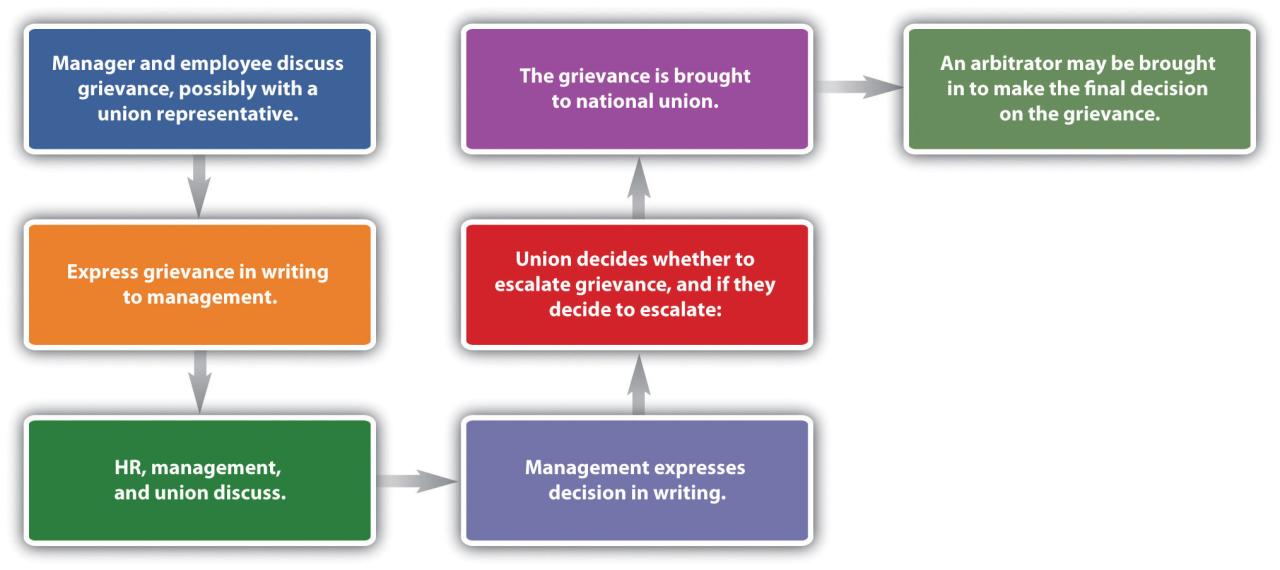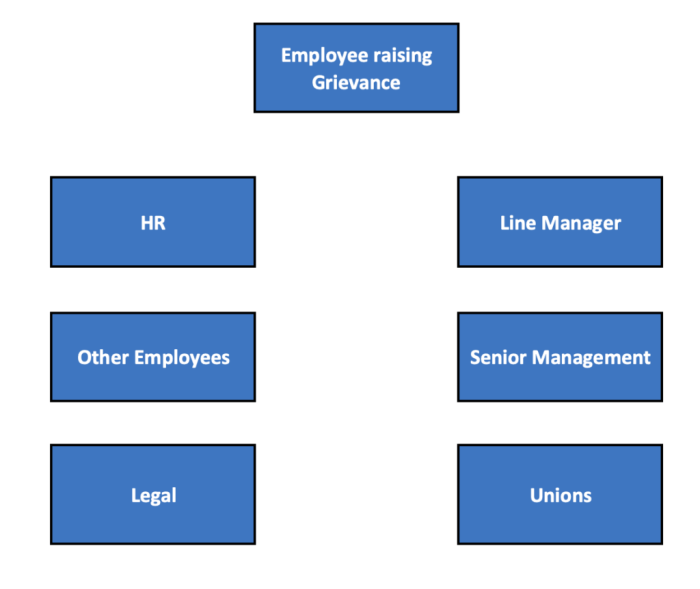An hr manager listens to and records an employee grievance – When an employee has a grievance, it is essential that an HR manager listens attentively and records the details accurately. Active listening is a crucial skill in grievance handling, as it helps build trust and rapport between the HR manager and the employee.
By demonstrating empathy and understanding, the HR manager can create a safe and supportive environment for the employee to share their concerns.
Recording employee grievances is equally important, as it provides a written record of the employee’s complaint. This record can be used to track the progress of the grievance, ensure that the employee’s concerns are addressed fairly, and protect both the employee and the organization from potential legal issues.
The Importance of Active Listening

Active listening is a crucial skill for HR managers in grievance handling. It involves paying full attention to the employee’s concerns, understanding their perspective, and responding in a way that demonstrates empathy and understanding. Active listening can help build trust and rapport between the HR manager and the employee, creating a more open and collaborative environment for resolving grievances.
Examples of Active Listening Techniques
- Maintain eye contact and lean in to show interest.
- Use verbal cues like “I understand” and “I see your point” to acknowledge the employee’s feelings.
- Paraphrase the employee’s concerns to ensure comprehension.
- Ask clarifying questions to gain a deeper understanding of the situation.
- Avoid interrupting or dismissing the employee’s concerns.
Recording Employee Grievances
Accurately recording employee grievances is essential for effective grievance handling. Written statements and audio recordings are common methods for documenting grievances. The grievance record should include:
- Date and time of the grievance
- Name and contact information of the employee
- A clear and concise description of the grievance
- Any relevant supporting documentation (e.g., emails, witness statements)
Confidentiality and Privacy
Maintaining confidentiality and privacy is paramount in grievance handling. Both the employee and the organization must feel protected from unauthorized disclosure of information. HR managers should:
- Use secure storage methods for grievance records.
- Limit access to grievance records to authorized personnel only.
- Inform the employee of the confidentiality policy and obtain their consent for record-keeping.
Documentation and Evidence
Gathering and documenting evidence related to employee grievances is crucial for a fair and impartial investigation. Relevant evidence may include:
- Witness statements
- Emails and other electronic communications
- Performance reviews
- Training records
Evidence should be collected in a clear and concise manner, ensuring its relevance and authenticity.
Next Steps and Resolution, An hr manager listens to and records an employee grievance
After a grievance has been recorded and documented, the HR manager plays a vital role in facilitating resolution. This may involve:
- Conducting a fair and impartial investigation.
- Mediating between the employee and the alleged wrongdoer.
- Making recommendations for resolution.
- Following up to ensure the grievance has been resolved effectively.
FAQ Resource: An Hr Manager Listens To And Records An Employee Grievance
What are the benefits of active listening in grievance handling?
Active listening can help build trust and rapport between the HR manager and the employee, create a safe and supportive environment for the employee to share their concerns, and ensure that the employee’s concerns are fully understood.
What information should be included in a grievance record?
The grievance record should include the employee’s name, the date and time of the grievance, a description of the grievance, the employee’s desired outcome, and any relevant supporting documentation.
How can confidentiality be maintained in grievance handling?
Confidentiality can be maintained by using secure storage for grievance records, limiting access to records to authorized personnel only, and discussing grievances in private settings.

